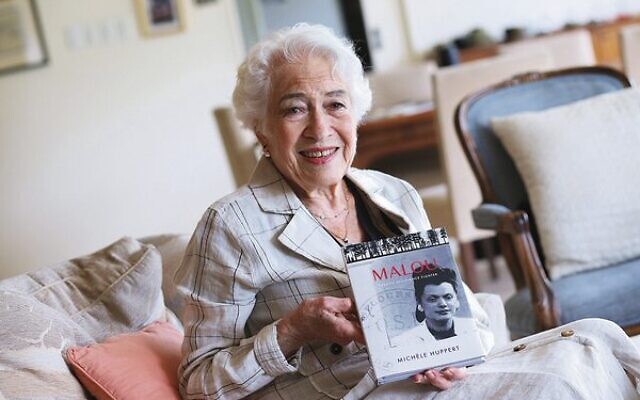Jewish resistance fighter’s courage
The invasion, pushing the Nazis into retreat, was the beginning of the end of their demonic occupation of Europe – and of the Holocaust – less than a year later.
Today (Thursday) marks 80 years since D-Day, the name the wartime Allies gave to June 6, 1944, when they landed on the beaches of Normandy in France.
The invasion, pushing the Nazis into retreat, was the beginning of the end of their demonic occupation of Europe – and of the Holocaust – less than a year later.
It’s a reflective day for Melbourne great-grandmother Michele Huppert, whose mother Ruth Kneppel served in the French Resistance, helping prepare for the Allied landings.
Michele was five when she accompanied her mother, whose nom de guerre was Malou, on undercover train trips through the south of France. Malou delivered guns to other rural resistance fighters of the Maquis, named for their hideouts in the scrublands.
Malou carried an Italian passport and posed as a young Aryan mother living in Agen, near Bordeaux – a far cry from the Jewish Viennese woman who had fled the Nazis for France with her husband in 1933, and fled Paris for the French south when the capital fell in 1940.
She was charming and quiet. Her secret knowledge of German let her eavesdrop on German officers and collaborators, forwarding coded messages to her handlers.
The weapons were hidden in Malou’s shopping bags. Guns and ammunition were amassed in forests for attacks on German units as they ploughed northwards to the landing points in Normandy.
The partisans also sabotaged German weaponry, and local electricity grids and telephone cables, disrupting Nazi convoys.
Malou had worked for the resistance for some years. As D-Day approached, French president Charles de Gaulle, from his exile in Britain, forged the Maquisards into the Forces Francaises de l’Interieur (FFI). Malou’s FFI identification today resides in the Melbourne Holocaust Museum.
Michele’s memories of these tense train rides remain vivid eight decades later. “People ask me how a five-year-old could remember. I wasn’t an ordinary five-year-old. I followed what I had to do.”
On the trains, she was under strict instructions from her mother to speak only when secretly prompted. It took her many years to overcome the silence she was habitually locked into.
“I remember the joy that came after liberation began on the sixth of June,” said Michele, noting the Allies started their assault on the Germans several weeks before liberating Paris.
The Kneppels arrived in Australia in 1952. Michele’s memoir, Malou – French Resistance Fighter, was launched in 2021. “On the sixth of June in 2007, my mother passed away,” she said. “It’s her yahrzeit too.”


comments